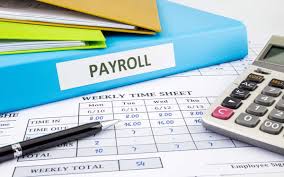Characteristics of an Accountant
Every accountant worthy of their certification should be expected to thoroughly analyze and report financial records, but the most essential characteristics of an accountant extend beyond the bare minimum demands of the job. In addition to being financially literate, top-notch accountants must also possess a number of personal characteristics to ensure that they can provide the best possible quality of service.
1. Service-oriented Mindset
No matter how many numbers may be involved in the job, accounting is still primarily a people business. Accountants must not only be comfortable with financial calculations, but they must also have a certain level of finesse and enthusiasm in dealing with their clients as people. Accountants should look forward to directly interacting with their clients in order to build rapport while learning as much as possible.
In addition to being fully aware of all of the economic and industrial factors, accountants must also be fully invested in their client to learn as much possible; not only will this demonstrate genuine care for the client’s needs, but it will also make the accountant far better equipped to determine what courses of action will be the most relevant for their client’s specific needs.
2. Innovativeness
Just because an accountants trade is primarily in numbers doesn’t mean that there isn’t any room for creative thinking. The best accountants will never settle for cookie-cutter methods if there is an opportunity to develop a better solution.
Competent accountants will have the skill to implement unconventional yet effective approaches to problems that demand more than the textbook approach. The ability to intuitively formulate an out-of-the box strategy to deal with unique situations must first be developed with experience, but before that, an accountant must at least be willing to practice and strengthen their innovative capabilities.
3. Reliability and Trustworthiness
The intimate details that clients share with their accountants must never be leaked to third parties, neither intentionally nor accidentally. The client must be able have well-placed trust in their accountant’s ability and willingness to keep vital information confidential at all times; this is both a matter of professionalism and basic ethics. The impression that an accountant leaves on their client will likely color the impression that future clients have on them as well, which means that trustworthiness is essential for both the client’s safety and the accountant’s career.
4. Strong Organizational Skills
The best accountants will always be characterized by strong organizational skills. Every single bit of data and paperwork must be accounted for at all times, no matter how minor it may seem. Poor organizational skills will be the Achilles’ heel of even the most naturally brilliant and well-intentioned accountants in the field. Being well-organized ensures that accounts are always capable of quickly accessing any material they need, which optimizes productivity and frees up more time for the most important tasks at hand.
5. Vigilance
The state of the economy and nuances of tax law are subject to change at any time, so it is essential for an accountant to always be aware of the latest amendments. The fact that the field is constantly in flux is one of the primary reasons why an accountant’s expertise is necessary in the first place.
Even if the accountant is fully confident in their awareness of all of the fine details, they must always keep current with the field in order to ensure that their knowledge is still relevant and applicable. What might have been an airtight strategy months ago may no longer be viable in the current time, and a high-quality accountant must always be able to react to this scenario before it becomes an immediate problem.
The most important characteristics of an accountant are what will drive them to go above and beyond the call of duty. Innovativeness, reliability and organizational skills are what separate bare-minimum accountants from true professionals.
The exceptional accountant must possess two vital characteristics above all else: a genuine passion for their field that compels them to constantly keep up to date with the latest news, and a strong focus on providing each client with even better service than they expect. For the best in the industry, over-delivery is standard policy in accountancy.

Benefits of Becoming an Accountant
Pursuing a career as an accountant might be one of the best ways of investing in your education. All too often, graduates have celebrated their milestones of completing their associates, bachelors, masters, and even Ph.D. degrees without knowing whether or not the degree that they’ve worked so hard for will render a return on their investment.
Pursuing a career as an accountant might be one of the best ways of investing in your education. All too often, graduates have celebrated their milestones of completing their associates, bachelors, masters, and even Ph.D. degrees without knowing whether or not the degree that they’ve worked so hard for will render a return on their investment.
Getting a degree in accounting from FNU has many advantages. Here benefit of accountant :
Accountants Have a Better Understanding of Finances
After years of studying the art of managing money, accountants gain the type of knowledge many people are happy to pay for. Earning an accounting degree at FNU offers students a wide array of knowledge beyond ledger management and financial reporting; the FNU accounting curriculum also includes courses in areas such as micro and macroeconomics, business and tax law, corporate finance, spreadsheet analysis, banking and finance, management, and supervisory skills. These skills are applicable to any job profession, and this means that employers would greatly benefit from job candidates who possess these skill sets. Accounting skills can also be applied toward other professions such as financial planners, fund managers, banking specialists, and others.
The Growing Demand for Accountants
As previously mentioned, there are no guarantees that anyone will land a job once they have earned their degree, but it is worth noting that the demand for accountants consistently ranks high. Since accounting essentially entails managing money, it can be considered to be a major driving force of our economy. Every business needs at least one accounting professional to handle their finances; in some cases, large corporations will employ accounting departments with hundreds of employees at offices around the world. It is safe to assume that significant demand for accountants will continue in the 21st century and beyond.
Everyone needs accounting; the demand is always constant, spanning across all business and industrial sectors, thus creating job security along with career longevity. It is up to prospective accountants to take the first step and learn more about what FNU has to offer. The Bachelor of Science in Accounting program can be fully completed online; however, you can also take a blended approach that combines classroom education with internet courses. Students with full-time jobs can take evening classes at FNU campus locations in Hialeah and Miami, and they can also apply for financial aid. For more information about this FNU program, get in touch with one of our academic counselors.
Opportunities for Advancement
With the right kind of networking connections, an entry-level accountant may increase his or her salary potential within a year. With the right combination of college accounting skills plus continuing professional education, accountants can expand their options by pursuing specialized positions such as Budget Analyst, Auditor, Controller, Tax Accountant, Payroll Clerk, Certified Public Accountant, and even a Corporate Financial Officer. Additionally, the combination of accounting with other business skills will create an attractive resume that employers will certainly notice.
Having general knowledge of accounting principles provides a good foundation for advancing into higher positions. With positions such as Cost Accounting and Financial Planning and Analysis, it is important to know how reported figures are generated. Modern financial statements and reporting are more than just PowerPoint presentations; the finance sector is under pressure to become more strategic because this is what shareholders demand. Companies expect their accounting and finance departments to analyze, explain, and take action.
The Pay Range for Accountants is Competitive
Because of the nature of their profession, accountants typically begin their careers at enticing salary levels. The Bureau of Labor Statistics reported that the median annual wage for accountants and auditors was $70,500 in May 2018. The median wage is the wage at which half the workers in an occupation earned more than that amount and half earned less. The lowest 10 percent earned less than $43,650, and the highest 10 percent earned more than $122,840. These salary figures may vary depending on one’s regional location, whether the company is privately owned, public, or operated by the government. It is also likely that higher-paid salaries are offered in bigger metropolitan areas.

The Ability to Start Your Own Business
It is not uncommon for accounting professionals to become entrepreneurs; this often happens after years of on-the-job experience when accountants have developed a good amount of business contacts. Accountants may feel more comfortable after years of networking to use the contacts that they’ve developed to start their own business. Whether it’s consulting or specializing in tax accounting and representation, the options are endless when it comes to financial affairs.
Forbes magazine often lists accounting as one of the best for prospective college students, and this is likely because it is the type of profession that can hold its own in today’s job marketplace, and it is often recommended for people who live with disabilities because of easy accommodations. Even as a self-employed accountant, there is good potential to earn a great deal of income just because of the steady demand for money management.
Gaining a Better Understanding of Taxation and Business Law
A good accounting degree curriculum will include courses on business law as well as taxation, and this is what the FNU Bachelor of Science in Accounting program offers. Because of the personal, legal and business repercussions of breaking or neglecting tax laws, accountants must acquire some taxation knowledge. As part of FNU’s commitment to serving the South Florida community and maintaining its degree-granting accreditation with the Southern Association of Colleges and the Florida Commission for Independent Education, courses and programs are regularly evaluated for freshness and relevance; in the case of accounting, making sure students learn about taxation and business law topics is crucial.

What is a CPA and what do they do?
CPAs are many things. They are chief financial officers for Fortune 500 companies and advisors to small neighborhood businesses. They work for public accounting firms, both small and large. They are well-respected strategic business advisors and decision-makers. They act as consultants on many issues, including taxes and accounting.
A CPA, or Certified Public Accountant, is a trusted financial advisor who helps individuals, businesses, and other organizations plan and reach their financial goals. Whatever those goals-saving for a new home, opening a new office, or planning a multi-billion dollar merger-CPAs can help.
Getting your CPA certification opens the kinds of doors that can fast-track you into influential jobs in every industry. Whom do you think the FBI recruits to investigate criminal fraud? What profession is often a stepping-stone to holding positions like Chief Financial Officer (CFO) and Chief Executive Officer (CEO)? Who helps rock stars manage their money, and avoid going broke? View the career opportunities section.
What Are Recruiters Looking for in Accountants?
According to recruiters in the accounting industry, the most desirable candidates have experience working in public accounting for a large firm. But if you don’t have that, don’t let it deter you! There are many other skills and experiences that you can demonstrate to set yourself apart.
When interviewing for accounting roles specifically, it’s important to demonstrate a healthy mix of both technical acumen and soft skills. One of the biggest myths I hear about accountants is that they sit behind a computer for hours, looking at numbers and ridiculous formulas in Microsoft Excel with no human contact, ever. On the contrary: Accountants must demonstrate skills in a variety of areas to be successful in the job hunt, such as communication, client engagement, data analysis, and time management.
Here are the five main skills that I found most valuable as a recruiter:
- Written Communication: Hiring managers will want to know that your writing skills are on point—after all, you may be drafting audit reports, creating workpapers, developing and editing financial statements, and providing updates to your internal or external clients as needed.
- Verbal Communication: Strong verbal communication skills are important to your success in accounting as you’ll be speaking with clients, internal or external, in just about every aspect of your work.
- Time Management and Prioritization: Accountants take on a great variety of tasks, especially during month-end, quarter-end, and year-end accounting. Just in one day, you may be in and out of client meetings, drafting workpapers, reviewing financial documentation, and walking through your clients’ accounting processes. It’s important to be able to work well when there are many things going on at once and know how to organize your work so your tasks get done on time.
- Technical Experience: There’s no doubt that accounting is a pretty technical role. Aisha Holt, a corporate accounting recruiter at Tradesmen International, makes sure to gauge candidates’ experiences with various accounting tools and software. Accounting programs are used to prepare financial statements, make journal entries, perform account reconciliations, and complete other important accounting procedures. You’ll find yourself working with these tools every single day, so recruiters want to see that you’re knowledgeable and up-to-date on the latest emerging technologies of the profession.
- Attention to Detail: Maintaining accurate reporting with zero errors is crucial in accounting. Can you imagine the financial implications if an account was overstated or understated by $1 million dollars and an auditor didn’t pick up on the error? The work of an accountant is to maintain high integrity, as the public is dependent on ethical reporting, and there are also a slew of regulations that accountants must uphold. As such, candidates need to show that they do sweat the small stuff and aren’t likely to make or miss an error that leads to a massive loss.





